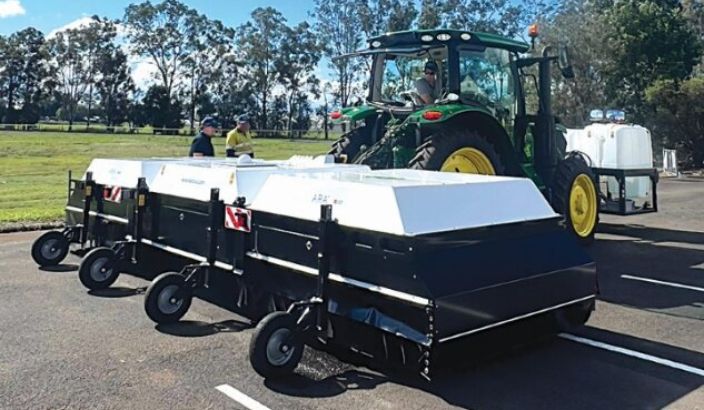Australia has the same issues as NZ but the size to solve them


The ecorobotix ARA, ultra-high precision robotic weed sprayer. It reduces agchem use by up to 95% as it can distinguish between the weeds and the crop. Photo: Sarah Sorenson.
Andrew Bristol - Vegetables NZ
The Australian vegetable sector has the same issues as New Zealand’s but the size – sector and individual business size – to solve them. That’s my conclusion after spending five days in Queensland, as part of Vegetables NZ’s Brisbane tour of learning.
Every Australian grower we met talked about the challenges of growing the best crop possible, responding to changing consumer preferences, and staying in business – and in that order. They were all upbeat about their businesses’ future but knew they would have to adapt – just like they’ve always had to adapt.
Each growers’ knowledge and passion for the crop – built up over generations in all cases – was tangible. Each grower shared an incredible amount of practical knowledge, honed through a trial-and-error approach that appeared to be made possible because the businesses are big, and grow in different states, down the east coast of Australia and sometimes, in Tasmania. Each grower was quick to point out, however, that what works in one state usually doesn’t work in another, let alone in the paddock down the road.
The tour spent the first two days in and around Gatton, which is inland from Brisbane, before returning to Brisbane for Hort Connections – which attracted more than 4000 delegates and more than 200 trade exhibitors from across the Australian vegetable, fruit, nut and flower sector.
‘A Lighter Touch’ programme manager Sarah Sorensen, joined the Vegetables NZ Brisbane Tour of Learning thought that NZ and Australian horticulture have areas of common interest where sharing knowledge and collaborating can potentially benefit growers on both sides of the ditch.
“Like us, the Australian horticulture industry is wanting to move towards a more integrated approach to crop protection, and this provides vast opportunities for knowledge sharing and collaboration between our industries,” Sarah says.
Along with three large growing operations, the tour also visited the Gatton Smart Farm, a $9 million Queensland Government and Hort Innovation initiative to drive agtech adoption across supply chains by transforming the Gatton Research facility into a world-class Smart Farm for horticulture.
“Although the Gatton Smart Farm is focused on technologies, such as smart sprayers and other tech, rather than specific crop protection trials, the principles for the demonstration sites are similar. Growers want to see the technology working before adopting it themselves.
